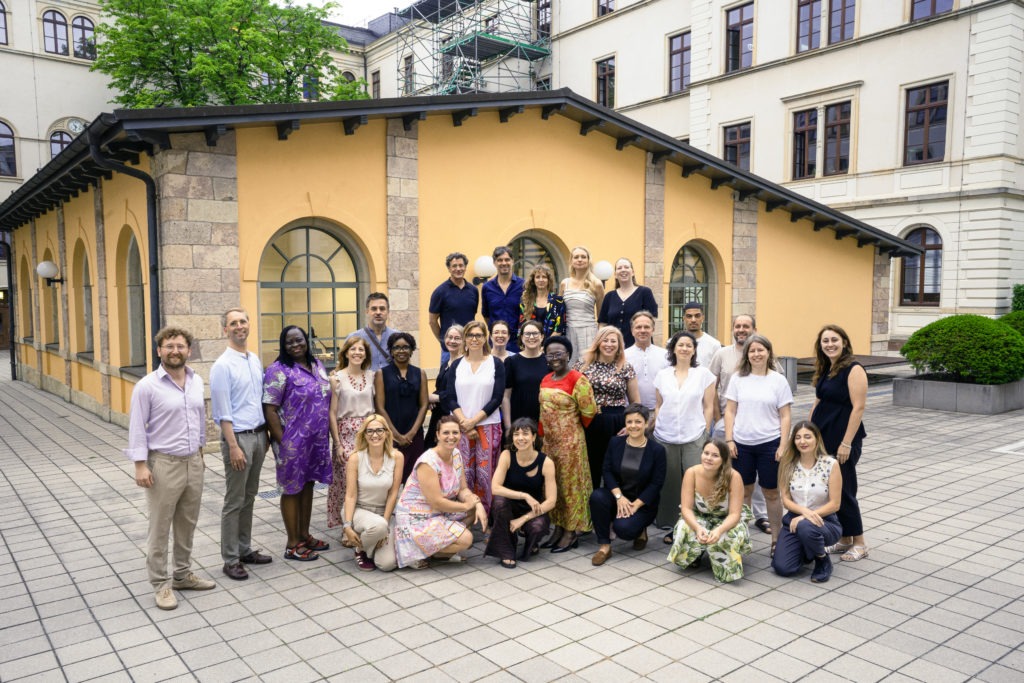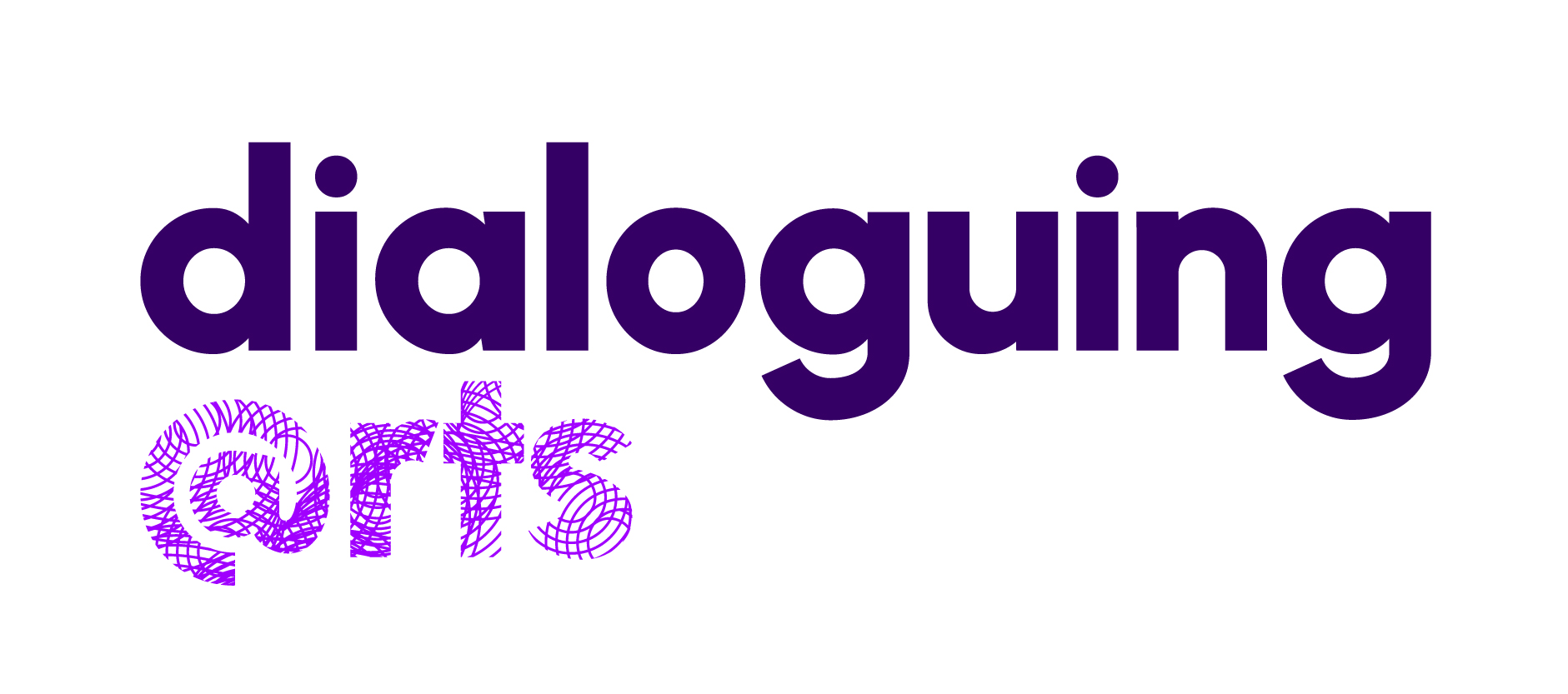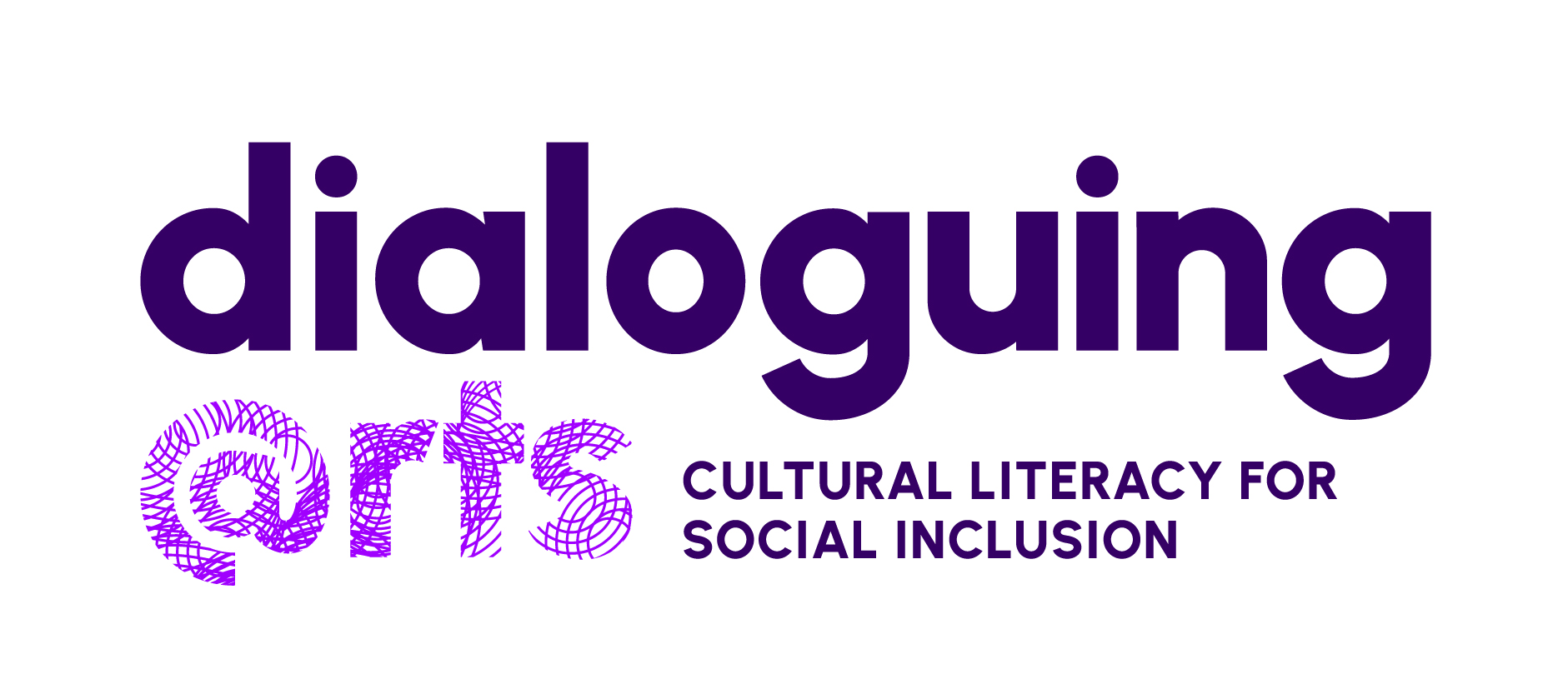In July 2025, Chemnitz became a space of connection, creativity, and critical reflection as the dialoguing@rts (d@rts) consortium gathered for a pivotal week of activities.
Framed by the European Capital of Culture 2025, the meeting brought together project partners, educators, researchers, students and local artists to deepen the project’s work and explore how the performing arts can support inclusion, cultural literacy, and dialogue.
At the heart of the week was the Consortium Meeting, hosted at Technische Universität Chemnitz. This was a vital moment for all d@rts partners (representing 11 institutions across Europe, Uganda, and Aotearoa/New Zealand) to connect in person for a General Assembly and a series of dedicated work package sessions.
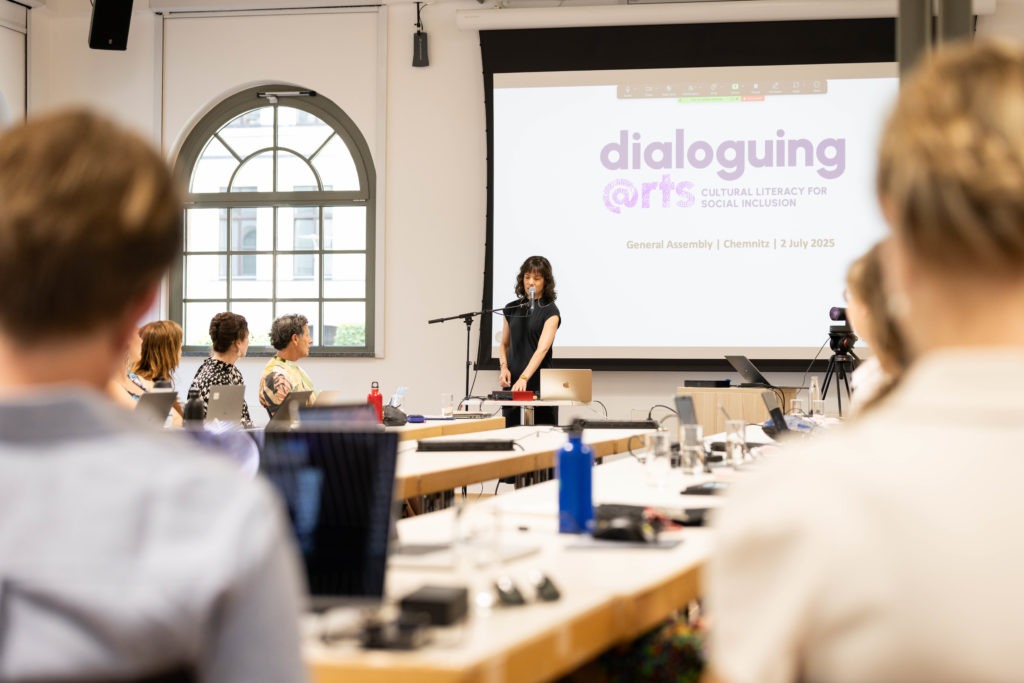
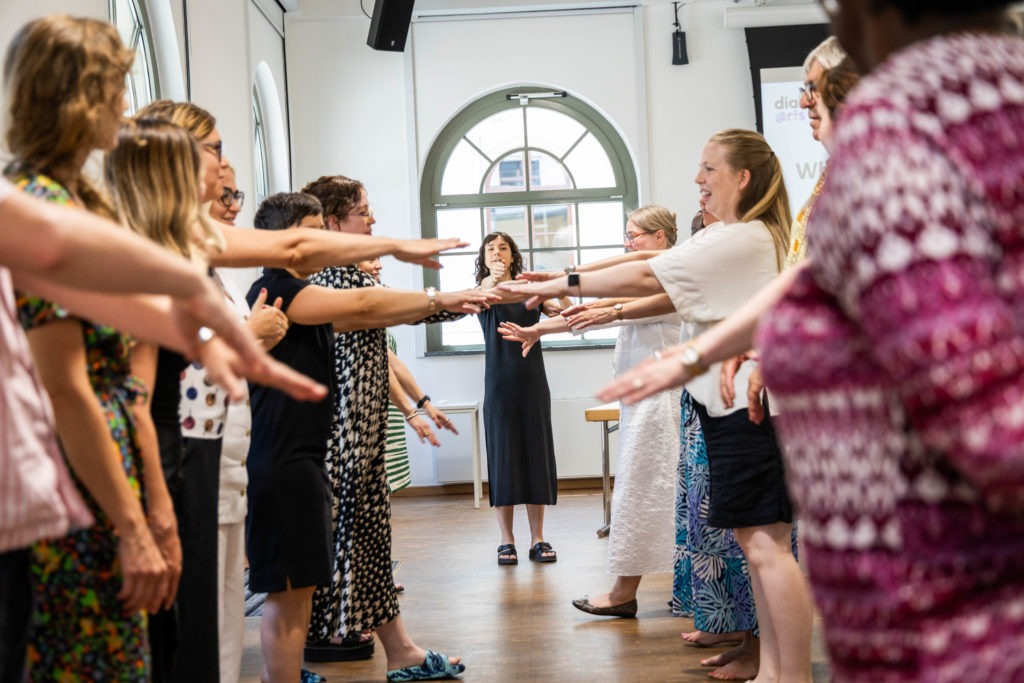
Together, they reviewed progress, shared learning, and planned the next phases of collaborative work across the project’s core areas, including ethnographic research, co-creation, residencies, digital platforms, and policy development.
Beyond the internal meetings, d@rts opened its doors to the wider Chemnitz community through two engaging public events hosted at Open Space Chemnitz:.
Digital Playground Workshop
Led by Anita Jóri and Michael Ahlers (Leuphana University Lüneburg), this hands-on workshop introduced the Digital Playground — an interactive online platform designed to foster creativity, dialogue, and connection through playful and gamified elements. With contributions from artists and facilitators, participants explored how digital spaces can become sites of expression, experimentation, and exchange, especially for artists working across borders and differences.
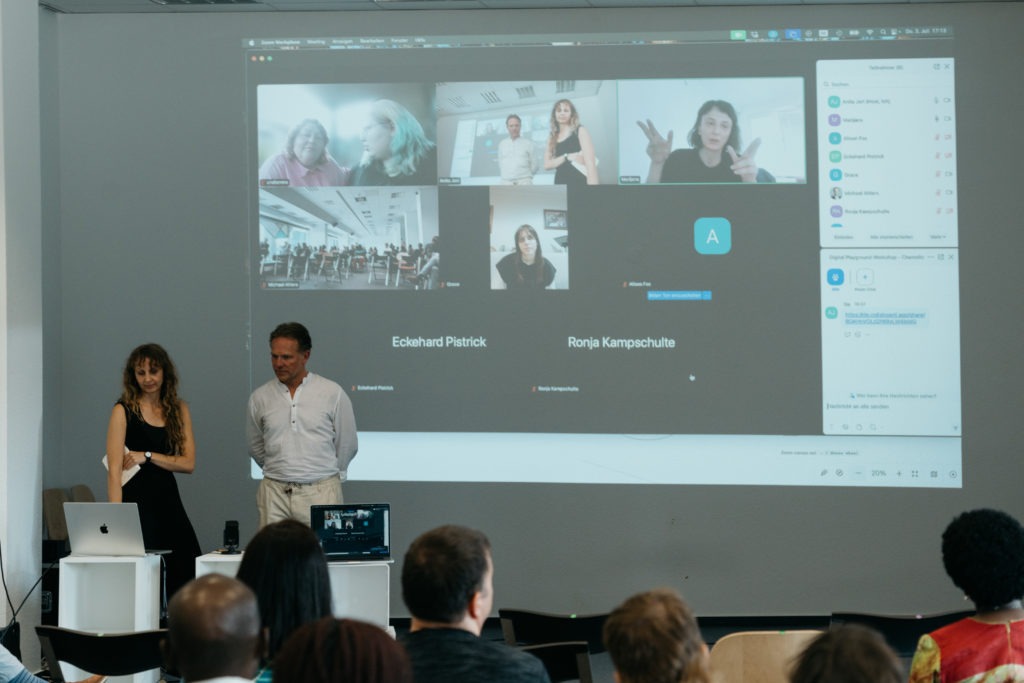
Does Arts Education Make the World a Better Place?
This public panel discussion explored the promises and complexities of arts education today, with a focus on participatory practices in music, dance, and theatre. Moderated by Prof. Rose Martin (Nord University, Norway), the dialogue featured Dr. Cristina Balloi (University of Verona, Italy), Dr. Runa H. Jenssen (Nord University), Prof. Sylvia Nannyonga-Tamusuza (Makerere University, Uganda), Lena Rothe and Michal Sandor (Chemnitz 2025), and Milan Vračar (Kulturanova, Serbia). Together, they asked how cultural learning can support inclusion and what it takes to move from access to genuine participation.
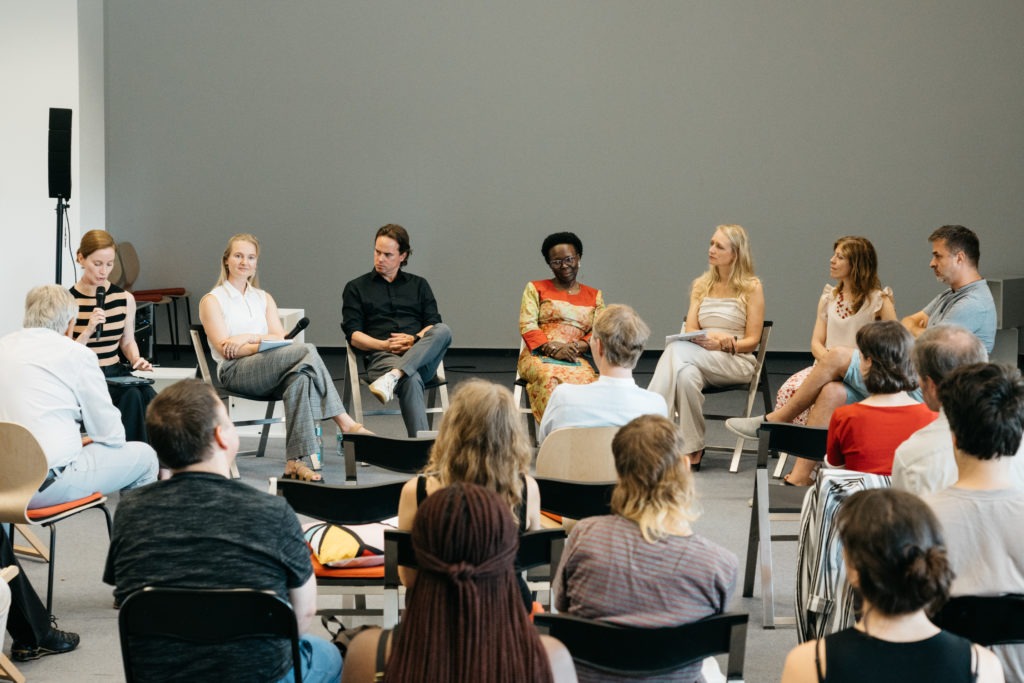
Throughout the week in Chemnitz, dialoguing@rts took shape not just in presentations or workshops, but in the atmosphere of shared purpose in listening, questioning, and co-creating across disciplines and cultures.
At its heart, d@rts asks: How can we reimagine cultural literacy as an ongoing dialogue — one that embraces embodied expression, amplifies unheard voices, and strengthens community resilience?
We’re deeply grateful to all consortium members, advisory board members, associated partners, and collaborators who brought their time, insight, and care to this gathering. A special thanks to our hosts: TU Chemnitz and Open Space Chemnitz for making room for connection, exchange, and imagination.
The dialogue is only just beginning.
Stay with us. and help shape what comes next.
